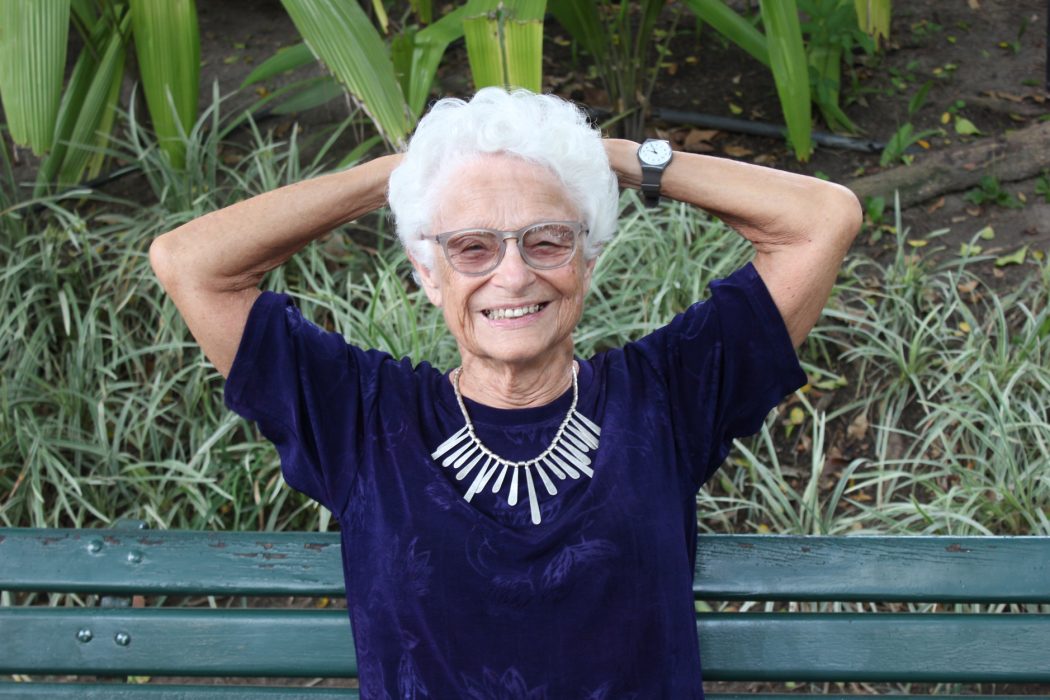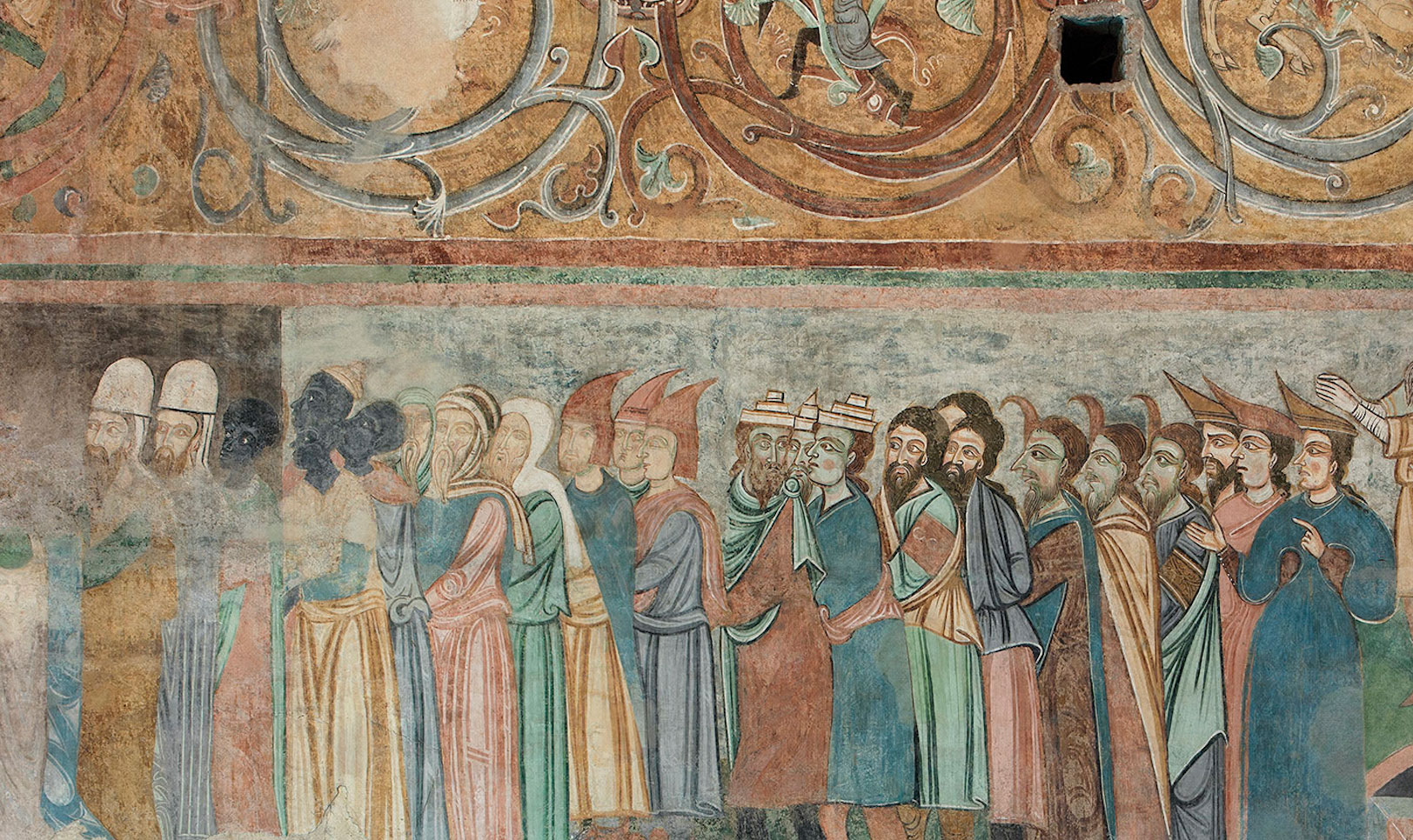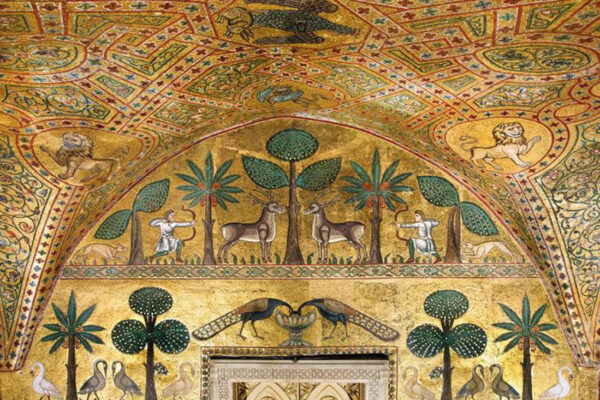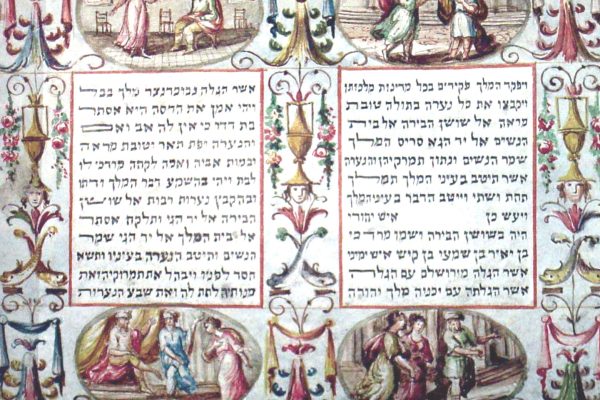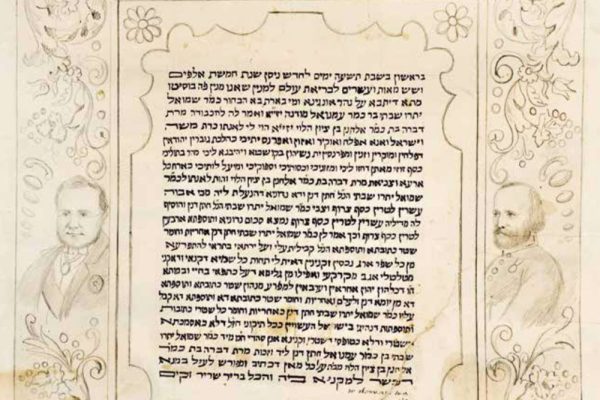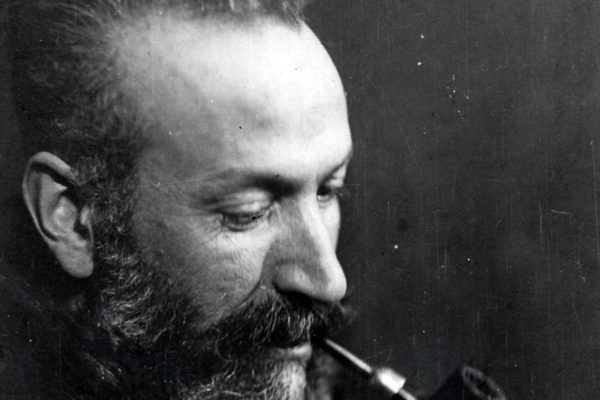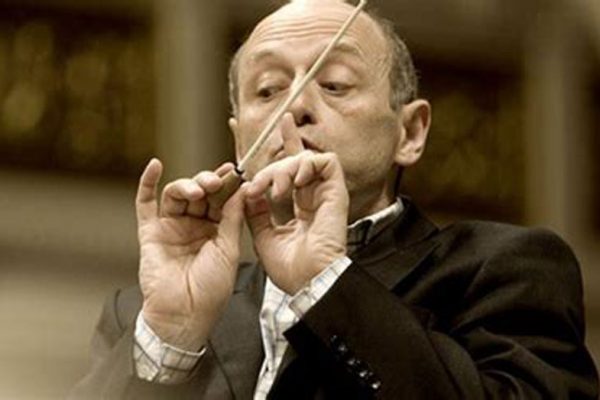Nora Tausz Rónai was born in Fiume (today Rjeka, Croatia) in 1924. She is a Brazilian architect, writer and swimming champion. In 1938, the promulgation of the racial laws tore apart the Jewish community of Fiume, whose members were for the most part stripped of their citizenship. Amidst tremendous difficulties, the Tausz managed to flee to Brasil. Nora and her brother resumed their studies and established themselves in their new country. Nora married the philologist, translator and writer Paulo Rónai, and they had two daughters: Cora Rónai, and acclaimed journalist, and Laura Rónai, musician, critic and head of the Baroque orchestra of Rio de Janeiro.
NI: Nora, I am trying to imagine what life was like in Fiume.
NR: Fiume was a place apart. There were still traces of the Venetian rule, above all the language. The language we spoke was “Fiumano” which is close to Venetian. You can see the lion of St. Mark in one of the main squares. And then there was Hungarian. The city was a “personal property” of the Empress Maria Teresa. Can you imagine? She owned the city the way you and I own a bag…. In sign of gratitude, she gave it to Hungary. In 1919 D’annunzio marched on Fiume and the city fell into Italian hands once again. He brought into the city a bunch of “arditi”. They have been the object of so much fascination but they were thugs. In the family the march was remembered as a violent episode, there were robberies, assaults.
There were also Austrians, Germans, Czechs living in the city.
NI: But it was also independent for a few years… with Zanella,
NR: Yes, I think that deep down, all Fiumani wanted it to be a city-state. It was the true mirror of our spirit. As I wrote in my book “no man or woman from Fiume knows exactly to whom the city belongs or for whom they should feel patriotic love and loyalty”.
The fact is that Fiume was very cosmopolitan. Nothing that starred in Vienna or Paris would not come to Fiume. People loved music. You know, it was a very small city, my aunt Marta was a pianist –she was highly respected and often at concerts people waited to see if she applauded and then they followed her lead! The Teatro Verdi had been designed by the same architect who had done the opera house in Vienna, it was beautiful.
[The following is an addition from a conversation with Nora in February 2020] I played piano well and I had been selected for an important international competition. I thought I was going to be a pianist. But the racial laws came and I never participated in the piano competition. I quit playing altogether. For many years I would go to concerts and feel as if I had been robbed of something that was part of me. But then I stopped thinking like that, I always look forward, I became an architect and I had a good life.NI: What language did you speak at home?
NR: We spoke Fiumano, my father spoke Hungarian to us, but we answered in Italian. I was born in 1924 so the school was Italian.
NI: Did you feel connected to Italian culture?
NR: There was a certain allure that distinguished our city. Many felt close to Italian culture because it was so sophisticated. They used to say “Son Fiuman e me ne vanto” (I am Fiumano and proud of it) but I never understood why one should be proud of something that is rather accidental like the place of birth.
When I grew up there was great emphasis on what they called “italianità”. Everything had to be strictly Italian. Even one of my aunts, Lidia, “more of a royalist than the king,” was always trumpeting her “italianità”. But others related to aspects of Italian culture, like music or literature in a non-nationalistic sense. The city was very receptive to art, culture and education in general.
NI: But the main language and culture were Italian after 1924 …
NR: In every family people spoke at least two languages, whether Hungarian, Italian, Serb, Croatian or German. Besides, of course, fiumano. In the schools and in court Italian and Hungarian were the official languages until Fascism prohibited to use any language other than Italian.
There was also another aspect: being a Slav was regarded as something negative, something to be ashamed of. It had both an ethnic and social connotations.
NI: Where did your family live?
NR: In Viale del Littorio, near Via Vittorio Emanuele II.
NI: What did your father do?
NR: He was an insurance agent and the president of the sport club. Until about 1935 he worked for a Hungarian subsidiary of Assicurazioni Fiume of which he was the president. After 1935 the Hungarian government issued a law by which non-citizens could no longer work in high ranking positions. The company offered my father to become Hungarian but he was Italian and felt he could not to change citizenship the way one changes clothes.
After that, he went to work for the main firm of the Assicurazioni Fiume. But did not last long. In 1938, with the Racial Laws, the Fascist government stripped us of the Italian citizenship and that was it. We were not even able to obtain a residence permit. This despite the fact that in the cemetery of Fiume the Tausz go back 600 years!
NI: How would you describe your relation with the Jewish community?
NR: Technically we were Catholic. My father converted before I was born because of a family feud.
NI: Do you know how it happened?
My uncle Andrea Bayer, my mother’s brother in law, had converted to Catholicism and was kind of ostentatious in his public display of faith. For instance he would make a point to carry the saint during the Corpus Christi procession. My grandfather, on the contrary, was a very traditional Jew and rather religious. He was so offended by my uncle that he prohibited all the other children from seeing him and his family.
Therefore my mother, who was very close to her sister, had to see them in secret. My father resented all of this, he wanted my mother to have the freedom to do what she wished. He had a fight with his father in law and converted.
However, no one was religious at home. Even if my brother and I went to catechism, we did not feel part of a faith. Father Gabriele (Don Gabre Gelussi) complained to my father who of course he said he would reprimand us. But he never did. I think that his aversion for religion had started during his childhood. He collected salamanders. When he was preparing for his bar mitzvah, the rabbi complained with his mother that he did not study. She became furious and threw the salamanders out of the window and the cats ate them.
NI: And your relation to Judaism?
NR: I personally never felt attachment to any religion. I entered churches, synagogues and mosques as an architect and a scholar in my adult life. I don’t know if you practice any sport… I feel for the Jews and Judaism what I feel for my team. But at the same time I am completely “deraciné”. I am an agnostic. I have never seen agnostics killing one another over their beliefs.
NI: As a Catholic, didn’t you have some exemptions from the racial legislation?
NR: Not in Fiume. Testa was an extremist and his wife I think had some German family. He wanted to be at the forefront in the implementation of the Racial Laws and applied them on the base of race, not religion. His wife took pride publicly in her husband’s persecution of the Jews. She was awful. I don’t know how it was in other Italian cities, but my father lost his job overnight with no compensation whatsoever. He had a pension saving account with the company and they seized that too. We were thrown out of school.
NI: Didn’t your parents go to the authorities and try to do something?
NR: There was nothing to do. The government said that we were of “Jewish race” even though I was born a Catholic. People went to the police, it was called “Questura,” where they handled the Jewish question. My parents did not even obtained residence paper. We had some sort of “temporary exit paper”. It was very difficult. There were women who even claimed that they had had extramarital affairs in order to have their children’s citizenship reinstated. None can imagine what it was like.
NI: How about the rest of the family? Were your parents in contact with other Jews? Do you know what other Jews were doing?
NR: We were not connected with the official Jewish community. When my grandfather died, my grandmother was very poor; the Community didn’t even pay for the burial. Even my cousin, who was very Catholic and attended the Benedictine school, did not avoid being thrown out overnight by the priest. He ended up in Auschwitz.
NI: How did you manage to continue your studies after 1938?
NR: I studied at home. My cousin Anna was married to a good math teacher, Lucio. He was an “Aryan”. He could give me lessons at home because we pretended I was visiting my cousin. My parents also arranged private teachers.
NI: How did you get by financially?
NR: We all worked. Mother immediately learned to sew and began to make belts and corsets. I also helped her finishing them. Father was a good amateur photographer and offered his services for ceremonies and events. Giorgio worked as a salesman selling dentists supplies made of a material called duralium. He did not work only in Fiume. He had his base in Bologna where it was easier to find merchandise.
NI: What was your legal status at that point?
NR: We had to find a way to get by until we could leave Italy and we spent all the time we didn’t work trying to figure out how. It was expensive and it was not easy to obtain the necessary papers. We tried Australia, Argentina, the United States. My father even found a New York telephone book and contacted various Tausz but we never received an answer. To obtain the visas and the affidavit we needed to pay someone off. We did not have much money and my parents were reluctant to enter deals that were uncertain. A former secretary of my father who had emigrated there and married very well, offered us two affidavits, but there were four of us. We tried to buy two more but they were too expensive.
NI: Did you encounter solidarity or help among the authorities or elsewhere?
NR: In general people did not want to help. The laws were intimidating for everyone. The Italian police was under Testa who was very racist. Police officer we went to see, a middle age man who had previously serviced in South Tyrol, was said not to like Mussolini. He told people who went to seek his help that “he” (indicating Mussolini’s photograph) wouldn’t last. But then, he always claimed that he could not do anything. The most we obtained was to bring some food to my father and brother after they were imprisoned. This was their leniency, I suppose in Germany we would have been worse off.
NI: When were they arrested?
NR: After Italy entered the war, in the summer of 1940, Testa, the prefect, ordered a major round up of all the Jewish men in Fiume. They came before dawn, perhaps 4 am, about 6 men in uniform, with a bayonet and a revolver in their hands. They took my father and went for my brother. Mother began to implore to leave him as he was just a child. In truth he was 18 but eventually they gave in and left.
NI: What happened then?
NR: We had to arrange for Giorgio’s escape. We thought he could go to Bologna where he knew people. We prepared everything and set off to go to the train station. Unfortunately, when we arrived we saw lots of soldiers around and we tried to go back. They saw us, they stopped us and asked to see Giorgio’s papers which carried the word “Jew”. They arrested him and put him on a truck where other men were waiting. I waited and when the truck left I run after it. I run a lot, long enough to see that they turned toward an area of Fiume where there was a school we knew had been turned into a detention camp: Torretta. At least we knew were they were.
NI: You and your mother were alone at this point. Did you make plans?
NR: We were very worried. After this brutal round up there were more news from Germany. One of my father’s cousins, Rosa Haim had two children, Miki and Toni.
They were active with clandestine emigration to Palestine and they brought to Fiume small groups of German Jews, mostly people who had come out of the camps and tried to reach Palestine. They were always in terrible conditions: all skin and bone. Some of these people stayed at our home because they could not be housed legally. There was a network of Jewish families that helped them. We heard that the Germans had begun to take women and children. It was clear to us that we had to leave. At that time we had to work both to obtain visas for somewhere and get father and Giorgio out of the camp.
NI: What did you do?
NR: We knew that a school friend of my father was a minister. His name was Nino Host Venturi. A very good friend of his. He was half Croatian I believe, because his mother spoke Croatian. Mother went to see him and he immediately had both liberated. He also managed to free our cousins.
NI: How long were they detained?
NR: Maybe two months. Torretta continued to function as detention center. I was told that after 1943 they brought Jews from there to a rice factory in Trieste where they were killed.
NI: How was the family reunited? How did you eventually manage to obtain visas?
NR: My father had a cousin from Zagreb, Serafina (Selan). Her son or perhaps she herself, I am not sure, was the representative of Fox films in Yugoslavia. She had inherited the main mines in Croatia. In previous times she used to come to Fiume often. She arrived in her luxury car driven by a chauffeur with beret and gloves. The whole city watched her passing by. For reasons that I never understood, she stayed with my grandmother who was her cousin. My grandmother was poor, she rented rooms to support herself and sold jams and other good things she made. Serafina who came to Fiume with such display of luxury always stayed with her but never brought her a gift or offered to pay.
When we were trying to raise money to buy visa, father wrote to Serafina to get some help. She replied that she and her sons had studied the case and determined that it was not a good time for their firm to invest in our departure and that we could manage alone.
I heard that afterward the Croatians took her assets and she found refuge in Fiume, at the home of my poor aunt Rosa! [note: Serafina Selan moved to Fiume in 1941 with her 3 sons and 3 grandchildren with Croatian papers that defined them “Aryan Catholic”. They settled in the resort village of Laurana and were registered as “foreign investors”. They were never registered in Italy as Jews and lived in Rome during the German occupation].
NI: What did you do after this plan failed?
NR: The Vatican had made 3000 visa for Brazil available to Jewish converts, which was our case. But don’t think they were free. The Vatican wanted to be paid for them. My aunt Valeria worked for the Vatican exchanging dollars on the black market for them. So we asked her to arrange the visas through her contacts at the Vatican and she did.
NI: Do you remember how much your parents paid?
NR: I don’t remember. I remember vaguely that my parents were looking to find 5000 something. Could it be liras?
NI: There was a Jewish lawyer, named Niel Sachs De Gric. He was the lawyer for the diocese of Fiume. Did you ever hear of him? Did your aunt Valeria have contacts with him?
NR: I have heard his name but I don’t remember how we knew him.
NI: Someone said that a policeman named Giovanni Palatucci was helping Jews at the Questura. In the years of the racial persecution in Fiume, do you remember his name?
NR: I have never heard of him. After the war lot of people said they helped Jews. But reality at the time was different. One needed high up contacts and money. Even that did not always work. I remember before the racial laws I had a teacher called Ms. Dolencz (Capriotti). She was an outspoken fascist and literally persecuted me, calling me names, giving me the worst grades. I was only a child but had begun to consider killing myself. After the war I was told that she claimed to have saved Jews.
NI: And how did you reach Brazil?
NR: It was another ordeal. A very difficult and dangerous trip through Genoa and Lisbon. It must have been spring 1941 and things were quite bad already. The British bombed Italian ships so we had to leave on a small plane from Rome. These were planes were the Italians transported spies but to make them look “regular” they also sold extra seats. In the end we made it. I recount the story in my book.
NI: How do you feel about Italy?
NR: Don’t be offended, but ever since I was forced to emigrate, I made a point to never speak Italian again. Brazil welcomed me and here I made a very good life. It was a difficult one. I had to work very very hard, we came with nothing, my mother became sick with leukemia. It was difficult. But I became an architect, a professor and I am an athlete, I still swim every day and I still swim 1.600 mt. a day. I like the lack of pomposity here, the immediacy of relations. When I began teaching at the university a girl came up to me and poke me with her hand. I turned and she said: -Professor, I liked your class!- I would have never imagined this in Europe.
All places have their flaws of course. But Italy treated me with no respect and no one ever apologized. In 1949 or 1950, I was already a Brazilian citizen, the consulate sent a letter asking whether I wanted to be Italian or Yugoslav. I didn’t even bother to answer. How could I after being betrayed that way? It was like a love interrupted. One day they want me to celebrate “italianità,” the next day they took my citizenship away along with everything else. For some years we still received “La Voce di Fiume” which we kept for my father. But after he died I cancelled the subscription. I wanted nothing to do with Fiume and Italy. I hope they didn’t take it personally.
NI: Did you stay in touch with other Jews from Fiume?
NR: Not much. I met a dear friend Norlise Menczer in the 1960s in Genoa. Her family was very close to ours to the point that our parents always said that I would marry their son and Giorgio Norlise. In the 1960s, I met her by chance in a café, she recognized me and it was very warm and nice. She invited me home where I saw Lina, her mother. It was a meeting full of nostalgia.
NI: But you wrote your memories of Fiume…
NR: When I wrote it, people said: “Wonderful, it needs some softening and editing and it will be a marvelous book“. But, at 90, I can do away with editing. I want to tell my daughters what really happened to me.
Image: Nora Ronai, Rio de Janeiro (photograph by Julia Ronai)


